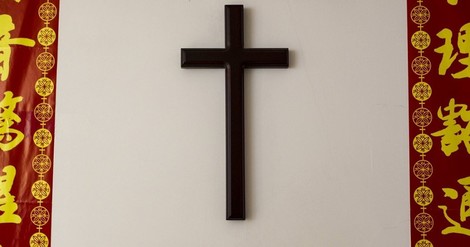Your podcast discovery platform
Curious minds select the most fascinating podcasts from around the world. Discover hand-piqd audio recommendations on your favorite topics.

piqer for: Globalization and politics Global finds Climate and Environment
Javier is a Berlin-based multimedia journalist. He completed a MA in International Journalism at City, University of London and is focused on humanitarian and conflict issues.
With experience in several countries, he's covered the refugee crisis, Turkey's coup attempt and the Kurdish conflict.
Among others, his work has been published at ABC News, Al Jazeera, Channel NewsAsia, RBB, IRIN News, El Confidencial, Público or Diario ABC.
Photo Gallery: China's Religious Dilemma
Despite its strong support for a global, free market, China continues to be, at least in theory, a communist State. With around 90 millions members, the Chinese Communist Party is the world's biggest political organisation. So there's little doubt about its influence in shaping the country's society. However, the party faces huge challenges to prolong its grip on power. One of them is religion.
Thanks to Gonçalo Fonseca's photo gallery published by Equal Times, we can have a close look at how the Chinese communist authorities are dealing with the faith of millions and millions of people.
Technically, the communist ideology promotes an atheist system, but China, as it has done with capitalism, has learned they need to be very flexible if they want to survive.
People in China are free to practice the religion of their choice and the state officially recognises five religions: Buddhism, Catholicism, Daoism, Islam and Protestantism.
In Russia, crowds poured into churches and mosques right after the Soviet Union collapsed. In the soviet-oriented Eastern European republics, religious organisations functioned as headquarters or meeting points for opposition groups.
In China there are about 68 million Christians, and the authorities believe they, as well as other believers, could be used as a sort of foreign infiltration. The country tries to keep them under control by promoting state-sponsored churches.
However, many refuse to attend such centers and pray instead in so-called underground churches, located in office buildings or private homes, among other places. Churchgoers say they feel more comfortable there.
It's hard to imagine the Chinese government isn't also monitoring these underground churches. So its tolerance may well mean that China is putting a lot of effort and care into handling the religious sentiments of millions of its inhabitants in order to avoid fueling further internal discontent.
